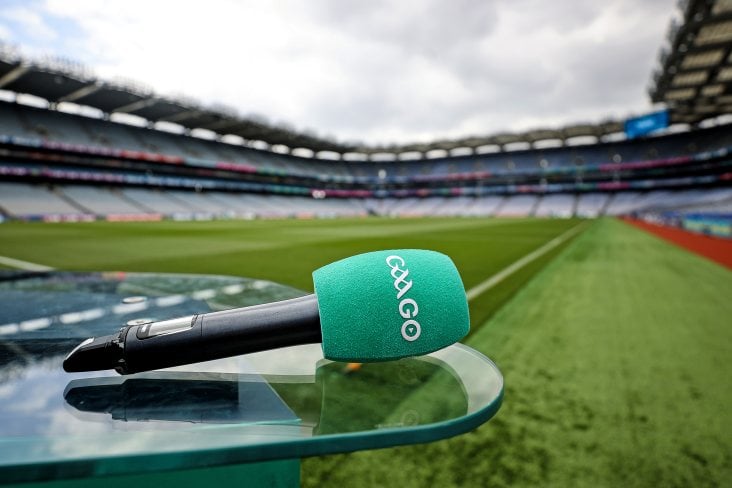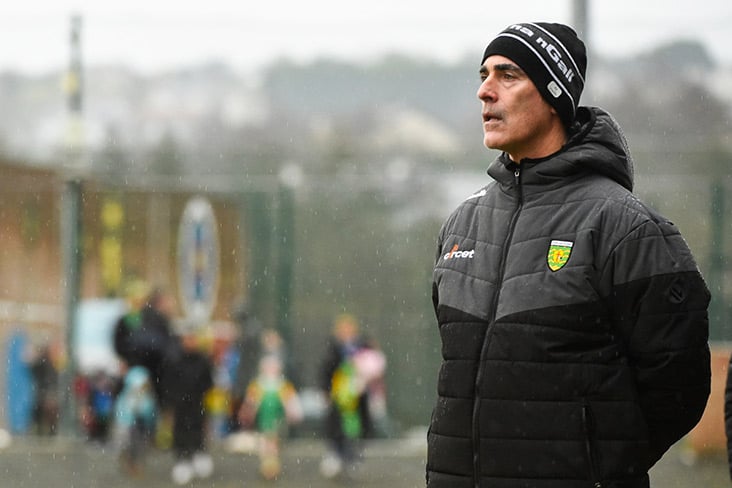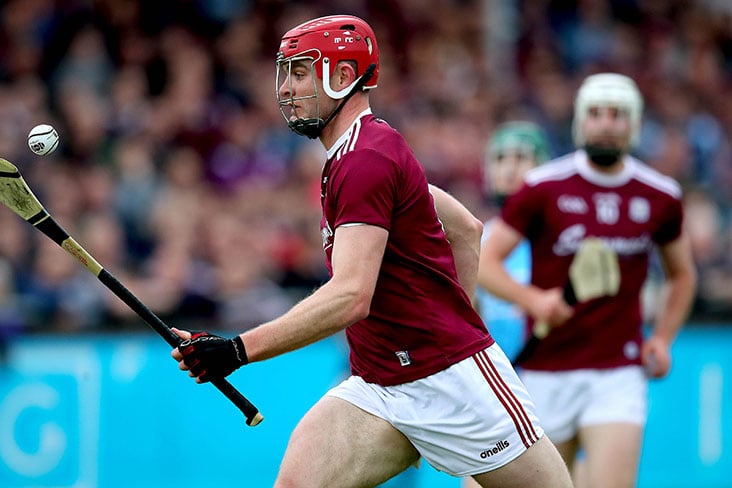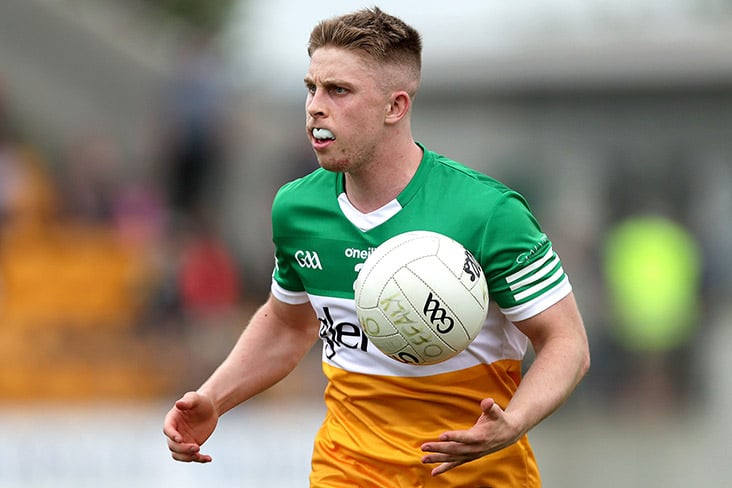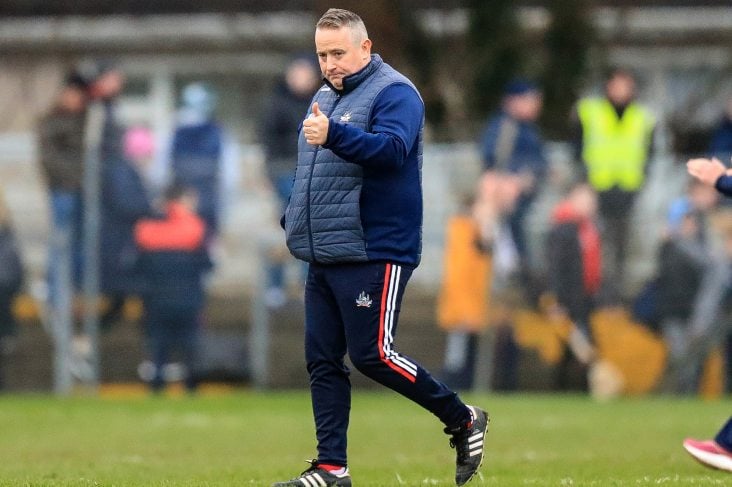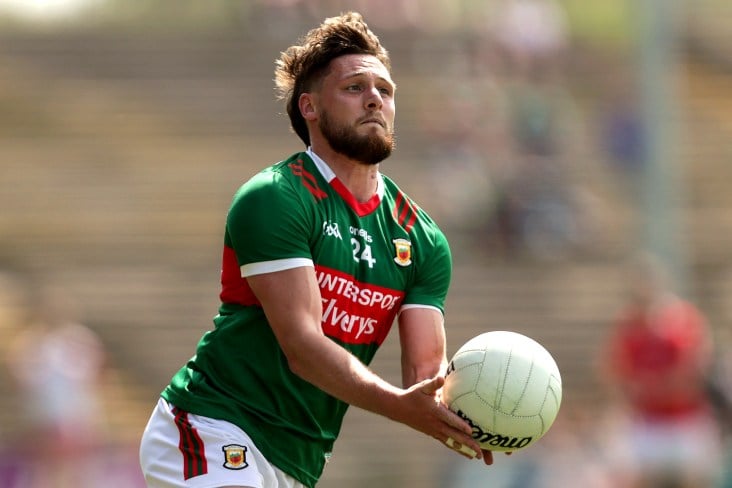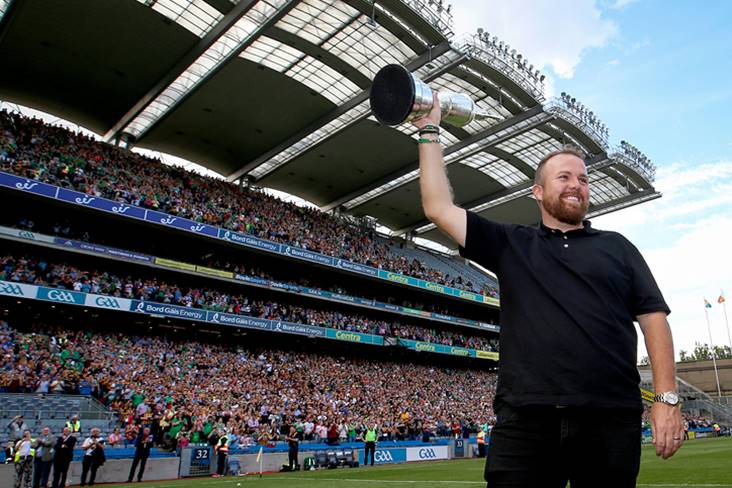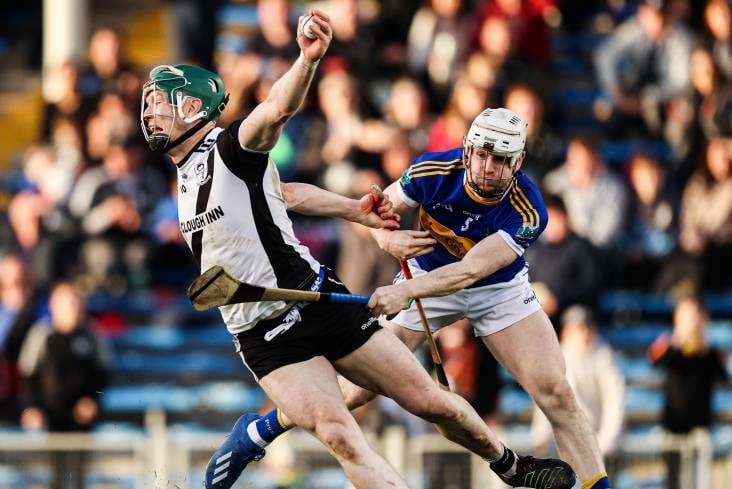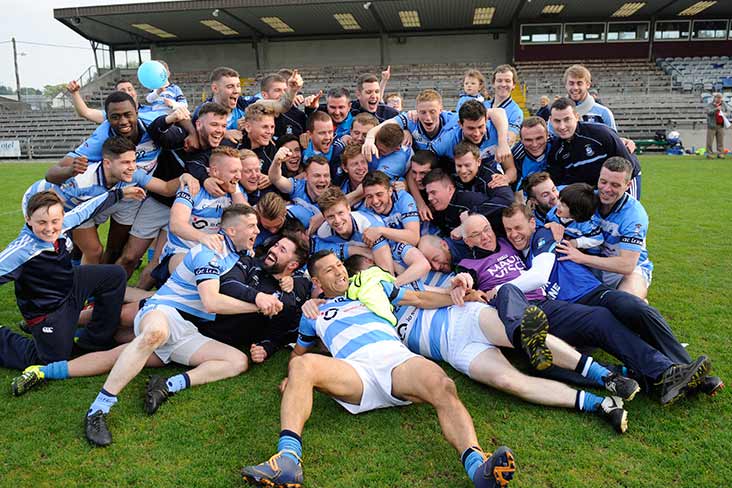Boom, bust and bullets
November 27, 2010After the apocalypse, we had the nuclear winter. For a few days in midsummer, following the intense drama of an incredible denouement to the Leinster final against Louth, it seemed the world revolved around Meath. Pushed into a corner after Leinster Council insisted that its hands were tied, there was no escape from the glare without losing something vital: offer a replay and give up the title which had been won - controversially, of course, but how many times are we told that the result is sacrosanct? - after a wait of nine years; or carry on regardless of the clamour for perceived justice and strip the gloss off the achievement, which would be asterisked forever in the annals of history.
Bathing in the romantic glow of little Louth's 50-year wait for a provincial title, the masses demanded a level of compassion. The masses forgot that this was Meath. They forgot that Meath GAA and compassion have never been cosy bedfellows. If they expected a generosity of spirit to pour forth, it wasn't forthcoming, and Meath, after too long a wait, were the pantomime villains once more.
Many Meath teams of the past would have assumed that mantle with glee. The Meath team of the present did not. If the hope was that a siege mentality, the us-against-the-world maxim which underscored some of our most cherished victories, would foster a togetherness and spirit that would take us to the promised land once more, those hopes were dashed by Kildare on a forgettable August afternoon at Croke Park. A month later, Eamonn O'Brien, the manager who had so steadfastly opposed any suggestion of a replay in the wake of the Leinster final debacle, was made to walk the plank by club delegates.
Such a scenario could not have been envisaged as O'Brien's side plundered goal after goal against Dublin to book their place in a provincial decider for which they would be overwhelming favourites. The whole thing unravelled during two leaden-footed days at HQ later and the removal of O'Brien in early September. Three steps forward, how many back? Back to square one? We must wait and see.
We must clutch the positives, however elusive they may be. It may be stretching things to say it, but if there is a positive in the decision of the clubs, led by St Patrick's and Trim, to oppose the reappointment of O'Brien for a third year in charge, it is to be that nothing less than outright victory is expected of the new man in charge. No more room for moral victories. No uncertainty about what constitutes progress. For O'Brien's successor, the brief is simple, perhaps crushingly so: deliver an eighth All-Ireland title, or else.
If that is the stance which has been taken by the clubs, and it's impossible to avoid the summation after the decision to remove a man who had led Meath to an All-Ireland semi-final and a Leinster title in his two years in charge, it can go one of two ways. On the one hand, it could eradicate the persistent feeling that an air of indifference has enveloped Meath football since the summer of 2001. While Tyrone and Armagh were busy overhauling the game, and Kerry and Cork were working relentlessly to reinvent themselves and bridge the gap which momentarily appeared, Meath lapsed into the pack, tumbling so far that at one stage perhaps half a dozen teams in Leinster could claim to be higher in the pecking order.
The surprise which followed the dismissal of O'Brien masks the disappointment of a desperately feeble exit from the championship for the fourth successive summer. Cork, Limerick, Kerry and Kildare were facile victors between 2007 and 2010, games when everything was at stake becoming dispiritingly one-sided. Take the message of the clubs at face value and it is that we will not be satisfied with a place among the second tier, even if the man removed from the job had taken us from the third or fourth. If the new management and players embrace that mentality, this year's coup could come to be construed as a necessary evil.
It could easily go another way, though. It could be argued that those club delegates who voted 32-29 in opposition to the ratification of O'Brien for a third year were guilty of that most glaring of administrative oversights: short memories. O'Brien had taken charge of a team who had been at the county's lowest ebb - remember the scoreboard showing 4-11 to 0-3 in favour Limerick at the Gaelic Grounds - and steered them serenely to successive appearances in the latter stages of the All-Ireland championship and a first Delaney Cup in nine years. The supporters of the ousted boss would argue that the job was a work in progress, that progress had been a constant during his two years in charge, and it's difficult to disagree.
The National Football League campaign in the spring saw Meath take victories over subsequent Division 2 champions Armagh, Westmeath, Laois and Kildare, giving them a 100 per cent record in Navan. It was away from Pairc Tailteann where the difficulties arose. A four-point defeat to Down in Newry looks less discouraging following the events of the rest of the summer, but defeats to Donegal and relegated Tipperary were where the hopes of promotion were dashed. In the end, a place in Division 1 eluded them by just two points, albeit with a hefty points difference on top.
A facile win over Offaly in the first round of the Leinster championship hinted at a revival of championship fortunes, and memories of a largely disappointing first outing against Laois were quickly brushed aside by the performances in the replay against the midlanders and against Dublin, two games which saw the Royals post a combined total of 7-23 at Croke Park, including that unforgettable five-goal burst against the Dubs.
Dublin supporters would no doubt argue that their side was in the midst of a rebuilding process when they were bludgeoned into submission in June, and that a couple of harsh refereeing decisions contributed to their demise on the day, but whatever about the nuances of the game, it was an afternoon to cherish for Meath folk who were struggling to remember the last time their team had managed to silence the hordes of Hill 16.
Much of the colour from that performance was dulled by subsequent events against Louth and Kildare. Overall, consistency was the one thing that was lacking but inconsistency is a great harbinger of hope. Even if the dazzling performance comes round infrequently, it's always possible. There have been fine displays by Meath over the past four years but all have been rendered hollow by subsequent events.
What must happen if Meath are to bounce back and shoulder their way onto the top step of Gaelic football's podium once more? A forward line of dazzling individual potency has us on the right track but that individualism may be part of the problem. The team entity appears to fall a little short of the collective strength of will which characterises all champions.
One certainty is that the past should be mined for inspiration and nothing more. Football has changed since Meath's glory years. In the 20 years since Gaelic football was hauled out of the '80s (as embodied by the great Meath-Cork rivalry of '87-'90) by the rise of Ulster, just six of the 22 finals (including replays) have yielded a winning or drawing tally of 12 scores or fewer. Meath have produced three of those (0-12 and 2-9 in two games against Mayo in '96, 1-11 against Cork three years later). Another stat for the number-crunchers: in the seven All-Ireland finals since Tyrone's dogged, anaemic victory over Armagh in 2003, none have been won with less than 16 scoring plays. The average winning tally during those years, which produced three All-Irelands apiece for Kerry and Tyrone and Cork's breakthrough in the year past, is a couple of decimals over 20 points.
To win an All-Ireland now, explosive forward power and the type of drift defence for which Armagh and Tyrone set the template in the early part of the new millennium are required. The Cork class of 2010 are perhaps the most old-style of recent champions, yet it is undeniable that they have whole-heartedly embraced the new wave of total football. Any of their half forward regulars of Patrick Kelly, Pearse O'Neill and Paul Kerrigan could just as easily be found in possession in their own half of the field as getting on the end of things in the forwards. Collectively, that trio produced just one point in the 2010 All-Ireland final but it would be a mistake to suggest that their influence on Cork's win was anything less than significant.
The game has changed, irrevocably, and Meath are only just beginning to row with the tide. The Royals have the forward talent. Notwithstanding his star part in the Leinster final controversy, Joe Sheridan enjoyed his best year in county colours in 2010. The "goal" against Louth is the one that no-one, certainly not across the county boundary beyond Donore or Newtown, will be able to forget for a long time to come, but it's unfair that it overshadowed the rest of his 5-11 total in six games.
For Shane O'Rourke, the year marked the first steps on a long road back. Having graduated to Colm Coyle's team in his teens in 2007, he spent two years kicking his heels, trying to haul his body through illness and injury. Almost three years passed without a championship start, but he kicked at least two points in five of Meath's six championship games this summer. He is just 22 years old. If his problems are behind him, Meath can look forward to the blossoming of one of the game's superstars.
Graham Reilly emerged as one of the finds of the summer, stroking 1-12 from play in the Leinster championship. A free-scoring half-forward is a gold nugget in the modern game, and Reilly, no stranger to the half-back line, also showed the appetite for defensive industry which his new position demands. Stephen Bray did not quite return to the pedestal to which he ascended in 2007 but his form this year was much improved.
Seamus Kenny was an auxiliary defender, performing an invaluable role in snaffling up breaking ball and working tirelessly around the field, his contribution recognised by a nomination for an All-Star award in September. Cian Ward failed to hit the highs of the past in 2010 but anyone who has witnessed his astronomical displays for his club will be more than hopeful that he can reproduce that form for the county in the coming year.
If he can do that, and the rest of his cohorts in attack can maintain the forward momentum of the past 12 months, then Meath are on the right track. Eamonn O'Brien's successor can call on forwards who are the envy of most of the other 31 counties, of that there is no question, but it could also be argued that a stronger work ethic off the ball is required before that talent is maximised.
The greyer areas are elsewhere. Question marks hang over both goalkeepers, neither of whom seems to offer the complete package. Brendan Murphy has excelled as a shot-stopper but his kicking can be erratic. Paddy O'Rourke has a prodigious drive of a ball but a man of his size could be more imposing both in the air and on the deck, and in any case, given his performances for Skryne en route to the senior football championships, he could yet find himself with an opportunity in attack.
Kevin Reilly was one of the few positives in defence over the past year. The Navan O'Mahonys man has been maligned in the past and he can be overly ponderous in possession, but he put injury behind him to exercise a soothing influence at the edge of the square. The subsequent performances of Bernard Brogan, which saw the Dubliner emerge as a raging hot favourite for the Footballer of the Year award, suggested that Reilly should not to be too hard on himself after allowing the St Oliver Plunketts star three points from play, while Louth's Shane Lennon, notwithstanding the fact that his contribution was curtailed by an injury, endured a fruitless 70 minutes in Reilly's company in the Leinster final.
Elsewhere in the backs, Chris O'Connor's all-action style should leave him well suited to the changing face of the modern game, even if he must tighten up a bit if he's to become a top-rank inter-county corner back, while Gary O'Brien turned in a few very encouraging performances in the half back line in his rookie year. Anthony Moyles's future is uncertain. He owes Meath football nothing after more than a decade of service, but he revealed last year that the manner of the capitulation against Limerick in the summer of 2008 delayed his retirement, so it must be a long shot that he will return to the well again in 2011.
Moyles will be missed but time is a destroyer as much as a healer. More worrying than his possibly imminent retirement is the loss of form of Eoghan Harrington and Caoimhin King, two players who should now be approaching their peak having been so dependable since their arrival on the scene in 2005 and 2007 respectively.
Harrington struggled to impose himself to any great degree in most Championship games this year. The Wolfe Tones man found himself twisted inside out by Offaly's Niall McNamee and Kildare's James Kavanagh, and lost JP Rooney for a goal which would have landed Louth's first Leinster title in 50 years but for the myopia of a certain group of officials.
It's possible that the experiment which saw King relocated to the full forward berth in '09 had a lasting impact on his form in defence but it is likely that more weight should be attached to the fact that he only returned to training with the county panel midway through the National Football League campaign after a spell travelling in the southern hemisphere. It would be curmudgeonly to criticise a county player for taking some time out, particularly given the commitments of time and effort they so routinely give to the cause year on year, but it's hardly unfair to hint at a correlation between King's absence from the hard physical conditioning in January and February and his lack of impact later in the summer.
Change on a massive scale has been wrought on the game's half back line over the past 20 years. The rock-solid buffer of a Liam Harnan or Enda McManus was too good for many teams in its past but it's not good enough now. Again, the templates are plentiful. Mike McCarthy belied his status as a mid-thirtysomething to become an attacking centre half back on his return to the Kerry fold in 2009. This year, Kildare's Emmet Bolton and Kevin McKernan of Down attacked at will from the centre back berth. When injuries permitted, Graham Canty orchestrated so much of Cork's good play.
Do Meath have anything like an equivalent? Michael Burke may not be many people's idea of a traditional centre half back but the tradition is obsolete. Perhaps the Longwood man, unfortunate to suffer a broken leg against Laois which ruled him out of the remainder of the summer, could be the answer. His exceptional industry has silenced most of the doubters, and granted freedom from injury he could become a nail on which we can hang some of our hopes.
In midfield, Brian Meade lacks nothing in character but might not be best suited to the role of primary ball-winner. Nigel Crawford has been around the block and back again but still has a contribution to make if he can steer clear of the injuries which disrupted him this year. Mark Ward is the great enigma. He can be exceptional on his day, but his day comes around too intermittently. As with his cousin Cian, the key to any Meath re-emergence could rest on harnessing that talent. Donaghmore-Ashbourne's Bryan Menton could also be a long-term option.
Outside the first 16 or 18 players, there is a lack of depth, but is it any different to most counties? In 2010 only Cork and Dublin could turn to a strong bench, and the latter only because of the scale of Pat Gilroy's rebuilding which left several experienced players on the bench. When Kerry went into the trenches without six of their All-Ireland winning side they were put to the sword by Down, who themselves were found out by a lack of squad depth in the final. Of more concern is the fact that little success has been gleaned at U21 level, which has never been more vital as a launching pad for senior success. Nevertheless, Paddy O'Rourke and Graham Reilly both played in the U21s' first round defeat to Westmeath last March, it's surely only a matter of time before another of the Sheridan clan, Brian, shows his worth in the senior side and there are a few others, such as Menton, who look well equipped to make the step-up.
Looking ahead to next year, the National League should be an over-riding priority. Instilling a winning habit took Down to the brink of a shock All-Ireland, while Cork became the fifth Division 1 winner in the last eight years to go on and lift the Sam Maguire the following September.
Can Meath leave behind the manner of their All-Ireland championship defeats of the past few years and become real contenders? There is surely some reason for optimism when one considers the rest of the country. On the evidence of the past 12 months, the standard-bearers have stumbled. There was a time when it seemed that Kerry, Cork and Tyrone were way out in front, the rest struggling to maintain a place in their slipstream. Those wisdoms were reshaped in the space of a few hours on August Bank Holiday weekend as first Kerry capitulated under the heat of a Down blaze and then Tyrone had no answers against a Dublin side unrecognisable from that which leaked goal after goal to the Royals a few weeks previously. Cork would win the All-Ireland but only after rallying back-to-back one-point wins over the Dubs and Down.
For this Meath team, the jury will be out until collectively they deliver a top performance against some of the game's leading lights, and then follow it up with another. There can be no debate. To remove the sour taste which lingered after a sullied Leinster final and the enforced departure of Eamonn O'Brien, the team must become genuine contenders for All-Ireland honours in 2011.
Here's hoping. Tweet
